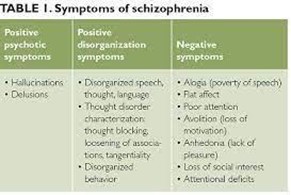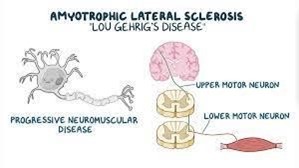A nurse is assessing a client who has schizophrenia. Which of the following findings should the nurse identify as a negative symptom of schizophrenia?
Magical thinking
Flat affect
Ideas of reference
Clang association
The Correct Answer is B
Choice A rationale:
Magical thinking is a positive symptom of schizophrenia, involving unrealistic beliefs or perceptions.
Choice B rationale:
A flat affect is a negative symptom of schizophrenia characterized by reduced emotional expression. Negative symptoms involve a decrease or loss of normal functioning, and a flat affect is one of the most common negative symptoms seen in schizophrenia.
Choice C rationale:
Ideas of reference are also a positive symptom, involving the belief that neutral or unrelated events have special significance related to oneself.
Choice D rationale:
Clang association is another positive symptom, involving the association of words based on similar sounds rather than meaningful connections

Nursing Test Bank
Naxlex Comprehensive Predictor Exams
Related Questions
Correct Answer is ["B","C","D"]
Explanation
Choice A rationale:
Asking the client to explain what she is hearing may not be helpful, as the client's perception of the hallucinations may not match reality.
Choice B rationale:
Conveying empathy is important to establish a therapeutic relationship and provide emotional support.
Choice C rationale:
Encouraging the client to listen to music through headphones can help distract from auditory hallucinations.
Choice D rationale:
Speaking simply and clearly when communicating helps the client understand and process information more effectively.
Choice E rationale:
Using therapeutic touch might not be appropriate for all clients and should be based on the client's preferences and comfort level.
Correct Answer is C
Explanation
Choice A rationale:
Wearing splints over affected joints while sleeping is a strategy to prevent contractures, which are common in ALS.
Choice B rationale:
Dexamethasone is not used to treat muscle atrophy in ALS.
Choice C rationale:
As ALS progresses, clients may lose the ability to control their respiratory muscles, and a machine such as a ventilator may be required to assist with breathing.
Choice D rationale:
Nutrition through a central venous access device is not a standard intervention for ALS, as the focus is on preserving the client's ability to eat and swallow for as long as possible.

Whether you are a student looking to ace your exams or a practicing nurse seeking to enhance your expertise , our nursing education contents will empower you with the confidence and competence to make a difference in the lives of patients and become a respected leader in the healthcare field.
Visit Naxlex, invest in your future and unlock endless possibilities with our unparalleled nursing education contents today
Report Wrong Answer on the Current Question
Do you disagree with the answer? If yes, what is your expected answer? Explain.
Kindly be descriptive with the issue you are facing.
